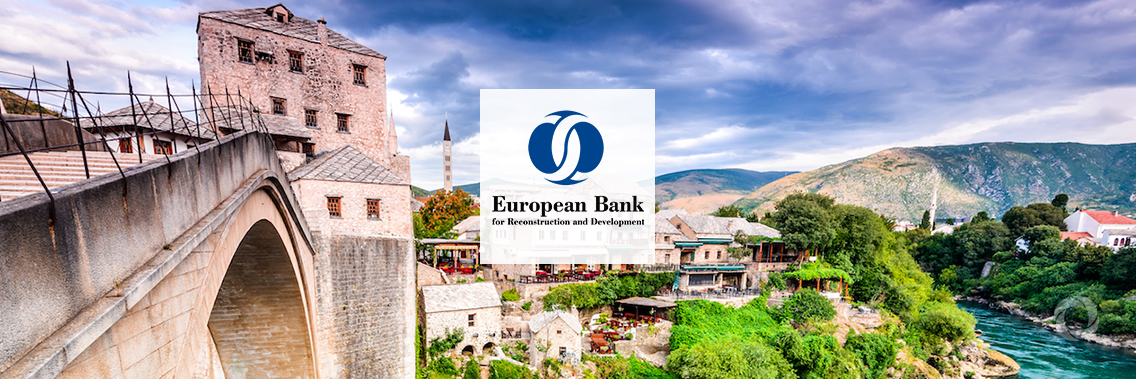The EBRD is getting ready for its 2019 Annual Meeting in Sarajevo in May. The conference is expected to bring together around 2,000 delegates from government, business and civil society and will provide Bosnia and Herzegovina with a platform to present itself and the Western Balkans region as an attractive investment destination that is open for business.
As a long-standing partner of Bosnia and Herzegovina, the EBRD has been supporting the country’s sound and sustainable growth through a combination of investment and assistance for policy reforms. Since the country became a shareholder of the Bank in June 1996 and operations began, EBRD has invested €2.3 billion in around 160 projects. Last year the bank invested some €200 million.
Donors play a particularly important role in Bosnia and Herzegovina as the international community remains committed to the reconstruction and development of the country and the region. For example, Bosnia and Herzegovina is benefitting from the European Western Balkans Joint Fund, a multi-donor fund managed by the EBRD and the EIB under the Western Balkans Investment Framework. The country also enjoys the support of the EU and many bilateral donor countries such as Austria and Sweden.
EBRD’s goal is to contribute to the creation of an economy that allows its people – especially the young – to deploy their talents and reap the benefits of their efforts in their own country. Here are some examples of the range and depth of the EBRD’s engagement in the country:
New Horizons
Connectivity is the big challenge for the Western Balkans and Bosnia and Herzegovina. It includes “soft connectivity” such as creating the legal and institutional framework for regional and trans-European integration as well as building the physical infrastructure to make this happen. The transport Corridor Vc will cross Bosnia and Herzegovina from the port of Ploce in the south to the border with Croatia in the north, following earlier investments in Republika Srpska. To date, the EBRD has already committed €550 million to the project which is jointly financed with the EIB and has also received an €11.8 million investment grant from the EU and the Western Balkans Investment Framework (WBIF).
Warm Homes
An €8.3 million loan was provided by the EBRD in 2017 to support the construction of a 49 MW district heating boiler plant fired by wood biomass in Banja Luka, in order to reduce the dependence on heavily polluting oil in the capital of Republika Srpska. Banja Luka has joined EBRD Green Cities with support from Austria. The programme promotes green solutions in infrastructure, transport and urban development in cities across the EBRD regions.
Clean Water
Access to clean water – and the safe disposal of wastewater – is a fundamental human need. A €7.0 million credit from the EBRD in 2007 to the city of Bijeljina in the north of the country was the first in a series of loans for the construction of a wastewater treatment plant, a wastewater collection network and an expansion of the network supplying clean water. Each had a direct, positive impact that improved the quality of life for the local population of more than 100,000 inhabitants. The EU and Sweden co-financed the investment with €6.5 and €4 million, respectively.
Clean Air
For many years the local hospital in Zenica, built in 1959, had been one of the worst polluters in a city already suffering from severe environmental problems. A €10 million EBRD loan together with €1 million from the EU/WBIF-supported Regional Energy Efficiency Programme was signed in 2018 for investments to reduce CO2 emissions and increase energy efficiency. The refurbishment will provide cleaner energy and lead to significant savings, combining economic and environmental benefits.
Original source: EBRD
Published on 15 April 2019

